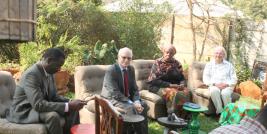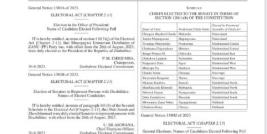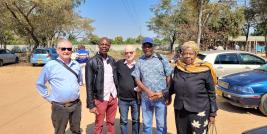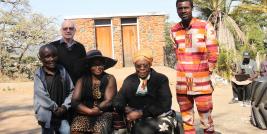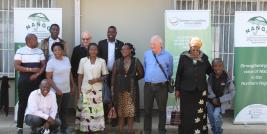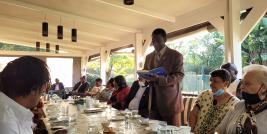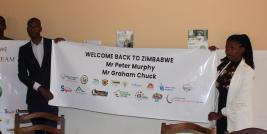The MDC Congress due to be held in Gweru next week on May 24 appears to be a triumphal platform for Nelson Chamisa, and it appears he will use it to return to his demand that elected National President Mnangagwa share power with him, perhaps this time for the good of the country rather than Chamisa’s worn out claim that he won the July 2018 presidential election. On his part, Mnangagwa has launched a wider national dialogue, open to all stakeholders and not only political parties. Needless to say, with power outages for 8-10 hours per day, the dire need for democratic reform and a more united effort cannot be overstated.
However, Chamisa’s ambition continues to be undercut by events like the High Court ruling that he does not legitimately hold any post in the MDC, and by the decision of the main teachers’ union, the Zimbabwe Teachers Association, to disaffiliate from the Zimbabwe Congress of Trade Unions because of its role in MDC internal politics. A deadly car crash on May 13 in which Vimbai Tsvangirai, now an MDC MP, was seriously injured is a disturbing event in the leadup to the Congress.
Another significant development is the closure of Gushongo Dairy, a Mugabe family enterprise, after Nestlé decided to stop buying its milk. Chamisa’s milk carting business associated with Gushongo Dairy has been a significant economic prop to his political ambitions for over a decade.
Debate continues to rage about the role of the new local currency, RTGS Dollars, which are rapidly losing value as inflation gallops to perhaps 200 per cent. Lack of water in the Kariba dam and lack of US dollars are combining to force the massive power outages. Hospitality industry workers are now agitating to have their wages paid in US dollars, joining many other groups of workers struggling to survive.
Both the USA and European Union continue to insist on major democratic reforms before they will agree to any international economic recovery program. So far the replacement of the notorious Public Order and Security Act with the Maintenance of Peace and Order Bill fails the democratic test and won’t help shift international attitudes. President Mnangagwa has also changed several top military personnel but the motivation is obscure, and anonymous reactions from within the military indicate determined pro-Mugabe opposition to Mnangagwa continues in the military. Mnangagwa has also promised to implement all the recommendations of the Motlanthe Commission, but there is real doubt about whether this will happen, with its implication that some killer soldiers will be arrested.
A 20 million Euro donation by the European Union for an anti-violence against women program continues the policy of drip-feeding support to the Zimbabwe government in the hope that deeper change will finally take place.
Zimbabwe Information Centre, Australia
May 22, 2019

